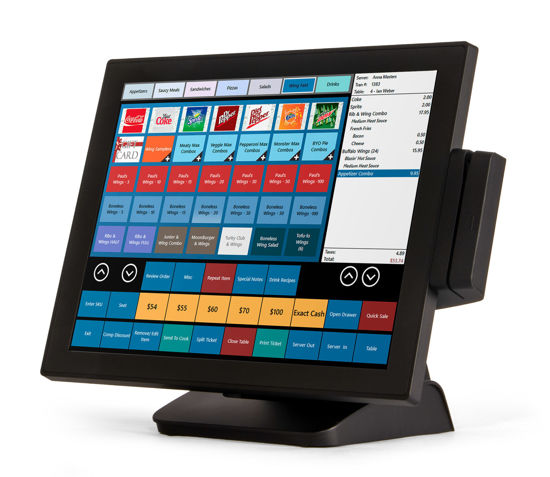POS : The Point-Of-Sale System Simplifies Checkout Processes Effectively
Unloading the Power Behind Point of Sale Systems
Have you ever paused to consider what takes place the minute you swipe your card or tap your phone at a checkout? That flash sets off a waterfall of procedures, orchestrated by sophisticated Point of Sale Systems. Far from being simple sales register, these systems act as the digital heart beat of retail operations, weaving together sales data, stock, and client interaction.
Think of a busy coffee shop where the barista manages orders, payments, and commitment rewards all at as soon as. The POS system isn't simply a tool-- it's the hidden partner guaranteeing every cappuccino is represented, every discount applied properly, and every customer leaves pleased. Point of Sale. It's the difference in between turmoil and smooth service
Core Functions That Drive Efficiency
- Sales Deal Management: Tracks each purchase with accuracy, ensuring accuracy in billing and invoices.
- Inventory Control: Immediately updates stock levels, informing when it's time to reorder.
- Consumer Data Collection: Gathers insights for individualized marketing and loyalty programs.
- Staff member Monitoring: Schedules shifts and records hours worked.
Why Does This Matter?
Think of the last time you waited in a long checkout line. Discouraging? A well-implemented POS system slashes wait times by improving payment procedures, decreasing human mistake, and syncing sales with backend operations in real-time. It's like having a conductor guiding every note in the symphony of retail.
| Function | Advantage | Effect |
|---|---|---|
| Real-Time Analytics | Instant sales reporting | Better decision making |
| Mobile Compatibility | Checkout anywhere | Improved customer experience |
| Integrated Payments | Multiple payment options | Increased sales opportunities |
Doesn't it make you question how services ever managed without these systems? In a world where every 2nd counts, the POS is no longer just a benefit-- it's a requirement.
Decoding the Celestial Puzzle
When peering into the night sky, have you ever wondered how ancient mariners pinpointed their area without contemporary technology? Positional astronomy is the art and science behind that celestial navigation. But why does comprehending the precise position of stars and worlds matter? Since even a minute mistake can send you miles off course, especially when depending on the stars as your compass.
The Subtle Intricacies of Coordinate Systems
One might believe the sky is a basic canvas, however it's a vibrant sphere dotted with moving targets. The equatorial coordinate system. POS-- best ascension and declination-- mimics Earth's own geography, however with a twist. The Earth's axis wobbles, a phenomenon referred to as precession, which discreetly shifts star positions over years. This demands consistent recalibration. Have you ever observed how Polaris does not always sit exactly at the North Celestial Pole? That's precession at work
Tips from the Observatory
- Use a high-precision chronometer to measure sidereal time accurately; even seconds matter.
- Calibrate your instruments frequently to represent climatic refraction, particularly near the horizon.
- Cross-check star brochures-- various dates can yield differing collaborates.
- Use software that consider nutation and aberration for contemporary accuracy.
Astounding Anecdote
Think about the tale of a 16th-century navigator who, utilizing basic tools and naked-eye observations, determined his ship's position with unexpected precision. His trick? Mastery of celestial mechanics and a deep understanding that the stars, though apparently repaired, belong to a cosmic dance.
Precision Demands Patience
Trying to identify a star without thinking about climatic distortion is like attempting to check out a book through a frosted window. Even the very best telescopes can be tricked by the atmosphere's unpredictable layers. Patience, multiple observations, and balancing results often reveal the true positional information. Isn't it remarkable how the sky's evident stillness masks such detailed shifts?

Deciphering the Essence of Positive Operator-Valued Procedures
Imagine attempting to catch a shadow's true shape in a world where light bends unpredictably. Favorable Operator-Valued Steps (POVMs) carry out a comparable feat in quantum mechanics-- determining states where classical intuition fails. Unlike the cool sharpness of projective measurements, POVMs permit a richer tapestry of outcomes, weaving likelihoods from operators that aren't necessarily orthogonal. Why settle for the ordinary when you can paint with the complete combination of quantum possibilities?
Quantum Measurement Beyond Traditional Borders
Conventional measurements feel rigid, but POVMs use versatility. In practice, they emerge from coupling a system with an ancilla, then performing projective measurements on the combined system. This strategy extends the horizon of what can be observed. Ever questioned how to enhance info extraction without disturbing delicate quantum states? POVMs are the key.
- Non-orthogonality: Unlike projectors, POVM aspects overlap, enabling nuanced detection techniques.
- Efficiency: The amount of all POVM elements equates to the identity operator, ensuring total probability.
- Physical Realizability: Any POVM can be carried out by means of Neumark's dilation theorem, linking abstract mathematics to laboratory experiments.
Expert Tips for Browsing POVM Execution
Handling POVMs in practice isn't unimportant. Quantum noise and decoherence sneakily distort your perfect operators. To fight this:
- Design POVMs customized to your speculative setup-- modification beats one-size-fits-all whenever.
- Usage convex optimization algorithms to discover the ideal POVM that takes full advantage of info gain for your quantum state discrimination task.
- Keep in mind, the subtle interaction between operator positivity and measurement efficiency governs the compromise in between accuracy and disruption.
Unseen Complexities in POVM Applications
What does it mean when a click here POVM component is favorable however not a projector? This subtlety often perplexes newcomers however reveals an extensive fact: quantum measurements do not need to be sharp to be informative. In cryptographic procedures, for circumstances, utilizing POVMs rather of projective measurements can improve security by drawing out information more gently, leaving less traceable disturbance.
| Function | Projective Measurement | POVM |
|---|---|---|
| Operator Type | Orthogonal Projectors | Favorable Semidefinite Operators |
| Measurement Outcomes | Fixed, sharp | Versatile, probabilistic |
| Implementation | Direct on system | Requires secondary systems |
| Information Extraction | Sometimes limited | Optimizable and richer |
Comprehending the Intricacies of Evidence of Stake
Think of a world where blockchain validators don't race to fix puzzles but instead stake their possessions, signaling trust and dedication. This is the essence of the Proof of Stake (PoS) mechanism. Beneath its elegant surface area lies a complicated dance of rewards and security measures. Why does staking more tokens increase your opportunity to verify the next block? Because it aligns economic rewards, making efforts to defraud the network excessively pricey.
The Subtle Risks of Stake Centralization
One might ask: could a handful of stakeholders overpower a network? The concentration of staked tokens in few hands may alter the decentralization ideal, causing oligarchic control over block creation. This isn't simply theoretical; it's a genuine tension in PoS systems. Efficient networks neutralize this by implementing systems such as:
- Slashing conditions that penalize malicious stars by seizing staked tokens
- Randomized validator selection to avoid predictability
- Handed over staking designs enabling token holders to turn over others without giving up ownership
Specialist Tip: Timing Your Stake
Experienced validators know that timing can be whatever. Signing up with the staking swimming pool prematurely or late can affect benefits substantially. Network epochs define windows where staking and validation take location-- missing these might indicate surrendering earned benefits. Constantly integrate your staking activity with the network's epoch schedule to maximize yield.
Energy Performance and Security: A Delicate Balance

| Element | Evidence of Stake | Evidence of Work |
|---|---|---|
| Energy Consumption | Minimal, sustainable | High, resource-intensive |
| Attack Cost | Stake loss, financial disincentive | Costly hardware and electrical energy |
| Block Finality | Faster due to financial locks | Slower due to probabilistic verification |
Rethinking Security Assumptions
One typically neglected aspect is the "nothing at stake" issue. Validators might be lured to sign multiple competing chains, considered that it costs them absolutely nothing directly-- unlike Evidence of Work where energy expense hinders this. Advanced PoS systems solve this with penalties and checkpointing, ensuring validators stake their reputation as much as their tokens. Have you thought about how this impacts your rely on a network?
Point of Sale Solutions in North Carolina
North Carolina is a lively state known for its diverse economy and abundant cultural heritage. With a population going beyond 10 million, it boasts flourishing city centers such as Charlotte and Raleigh, which are centers for finance, innovation, and education. Visitors and locals take pleasure in tourist attractions like the Blue Ridge Mountains, historic sites in Asheville, and the lovely Atlantic coastline. The state also has a strong entrepreneurial spirit, making it an ideal environment for services to embrace efficient point of sale systems to streamline operations and improve customer experiences.
For professional suggestions and a totally free consultation on point of sale solutions, reach out to Brilliant POS. They supply educated assistance tailored to your specific business needs.